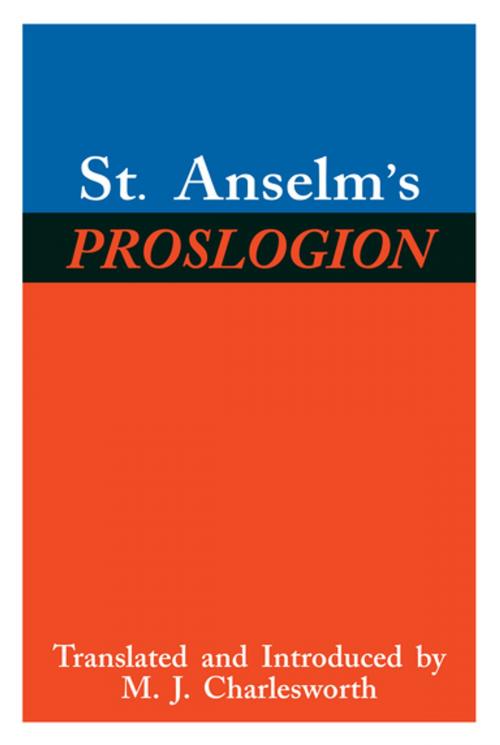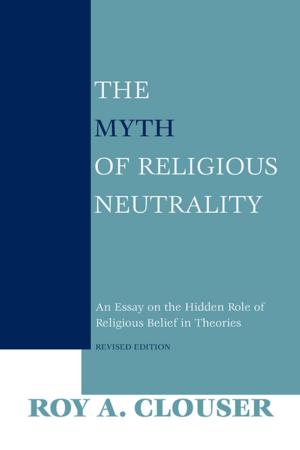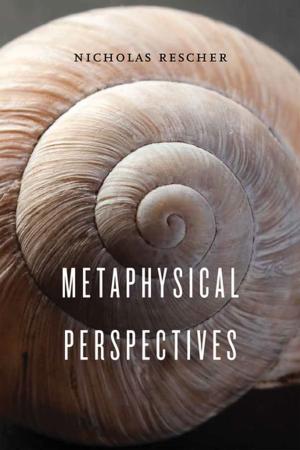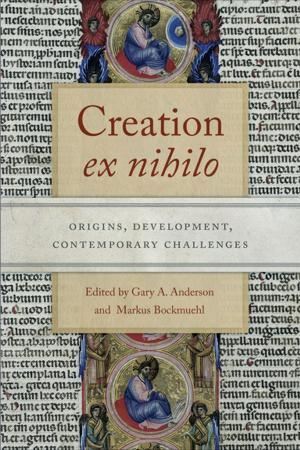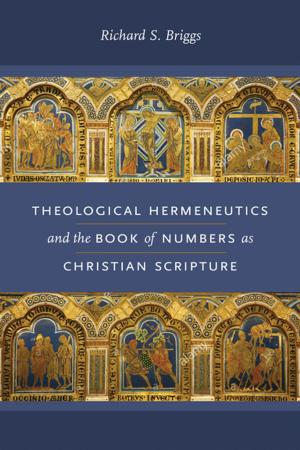St. Anselm’s Proslogion
With A Reply on Behalf of the Fool by Gaunilo and The Author’s Reply to Gaunilo
Nonfiction, Religion & Spirituality, Christianity, Church, Church History, Theology| Author: | St. Saint Anselm | ISBN: | 9780268077037 |
| Publisher: | University of Notre Dame Press | Publication: | July 1, 1979 |
| Imprint: | University of Notre Dame Press | Language: | English |
| Author: | St. Saint Anselm |
| ISBN: | 9780268077037 |
| Publisher: | University of Notre Dame Press |
| Publication: | July 1, 1979 |
| Imprint: | University of Notre Dame Press |
| Language: | English |
In the Proslogion St. Anselm presents a philosophical argument for the existence of God. Anselm's proof, known since the time of Kant as the ontological argument for the existence of God, has played an important role in the history of philosophy and has been incorporated in various forms into the systems of Descartes, Leibniz, Hegel, and others. Included in this edition of St. Anselm's Proslogion are Gaunilo's A Reply on Behalf of the Fool and St. Anselm's The Author's Reply to Gaunilo. All three works are given in the original Latin with English translation on facing pages. Professor Charlesworth provides in his introduction a helpful discussion of the context of the Proslogion in the theological tradition and in Anselm's own thought and writing. His commentary exhibits a careful analysis of Anselm's progression of thought and illuminates his argument by comparing it with the later ontological argument of Descartes. Professor Charlesworth deals critically with various interpretations of the Proslogion by later theologians, notably Aquinas and Karl Barth.
In the Proslogion St. Anselm presents a philosophical argument for the existence of God. Anselm's proof, known since the time of Kant as the ontological argument for the existence of God, has played an important role in the history of philosophy and has been incorporated in various forms into the systems of Descartes, Leibniz, Hegel, and others. Included in this edition of St. Anselm's Proslogion are Gaunilo's A Reply on Behalf of the Fool and St. Anselm's The Author's Reply to Gaunilo. All three works are given in the original Latin with English translation on facing pages. Professor Charlesworth provides in his introduction a helpful discussion of the context of the Proslogion in the theological tradition and in Anselm's own thought and writing. His commentary exhibits a careful analysis of Anselm's progression of thought and illuminates his argument by comparing it with the later ontological argument of Descartes. Professor Charlesworth deals critically with various interpretations of the Proslogion by later theologians, notably Aquinas and Karl Barth.
